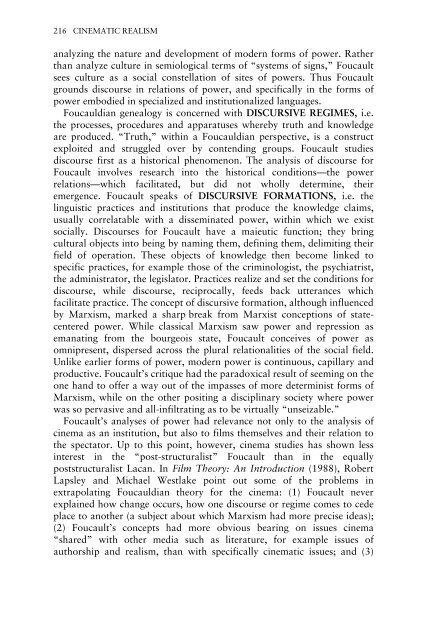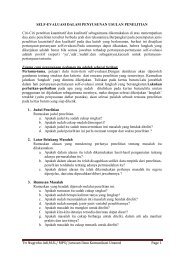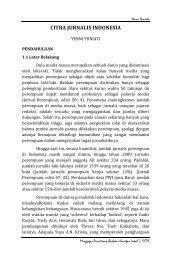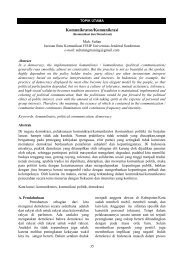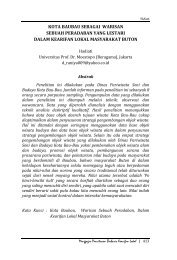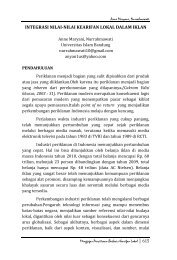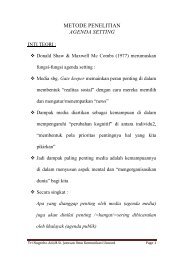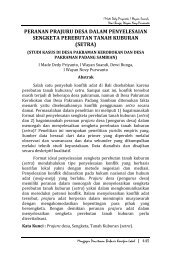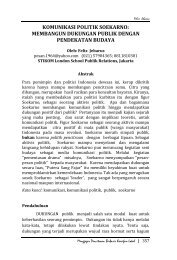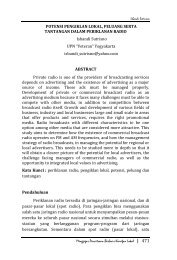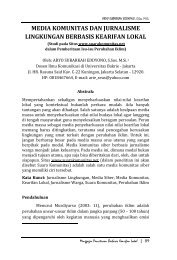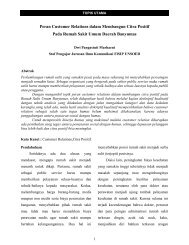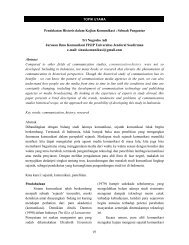New Vocabularies in Film Semiotics
New Vocabularies in Film Semiotics
New Vocabularies in Film Semiotics
Create successful ePaper yourself
Turn your PDF publications into a flip-book with our unique Google optimized e-Paper software.
216 CINEMATIC REALISM<br />
analyz<strong>in</strong>g the nature and development of modern forms of power. Rather<br />
than analyze culture <strong>in</strong> semiological terms of “systems of signs,” Foucault<br />
sees culture as a social constellation of sites of powers. Thus Foucault<br />
grounds discourse <strong>in</strong> relations of power, and specifically <strong>in</strong> the forms of<br />
power embodied <strong>in</strong> specialized and <strong>in</strong>stitutionalized languages.<br />
Foucauldian genealogy is concerned with DISCURSIVE REGIMES, i.e.<br />
the processes, procedures and apparatuses whereby truth and knowledge<br />
are produced. “Truth,” with<strong>in</strong> a Foucauldian perspective, is a construct<br />
exploited and struggled over by contend<strong>in</strong>g groups. Foucault studies<br />
discourse first as a historical phenomenon. The analysis of discourse for<br />
Foucault <strong>in</strong>volves research <strong>in</strong>to the historical conditions—the power<br />
relations—which facilitated, but did not wholly determ<strong>in</strong>e, their<br />
emergence. Foucault speaks of DISCURSIVE FORMATIONS, i.e. the<br />
l<strong>in</strong>guistic practices and <strong>in</strong>stitutions that produce the knowledge claims,<br />
usually correlatable with a dissem<strong>in</strong>ated power, with<strong>in</strong> which we exist<br />
socially. Discourses for Foucault have a maieutic function; they br<strong>in</strong>g<br />
cultural objects <strong>in</strong>to be<strong>in</strong>g by nam<strong>in</strong>g them, def<strong>in</strong><strong>in</strong>g them, delimit<strong>in</strong>g their<br />
field of operation. These objects of knowledge then become l<strong>in</strong>ked to<br />
specific practices, for example those of the crim<strong>in</strong>ologist, the psychiatrist,<br />
the adm<strong>in</strong>istrator, the legislator. Practices realize and set the conditions for<br />
discourse, while discourse, reciprocally, feeds back utterances which<br />
facilitate practice. The concept of discursive formation, although <strong>in</strong>fluenced<br />
by Marxism, marked a sharp break from Marxist conceptions of statecentered<br />
power. While classical Marxism saw power and repression as<br />
emanat<strong>in</strong>g from the bourgeois state, Foucault conceives of power as<br />
omnipresent, dispersed across the plural relationalities of the social field.<br />
Unlike earlier forms of power, modern power is cont<strong>in</strong>uous, capillary and<br />
productive. Foucault’s critique had the paradoxical result of seem<strong>in</strong>g on the<br />
one hand to offer a way out of the impasses of more determ<strong>in</strong>ist forms of<br />
Marxism, while on the other posit<strong>in</strong>g a discipl<strong>in</strong>ary society where power<br />
was so pervasive and all-<strong>in</strong>filtrat<strong>in</strong>g as to be virtually “unseizable.”<br />
Foucault’s analyses of power had relevance not only to the analysis of<br />
c<strong>in</strong>ema as an <strong>in</strong>stitution, but also to films themselves and their relation to<br />
the spectator. Up to this po<strong>in</strong>t, however, c<strong>in</strong>ema studies has shown less<br />
<strong>in</strong>terest <strong>in</strong> the “post-structuralist” Foucault than <strong>in</strong> the equally<br />
poststructuralist Lacan. In <strong>Film</strong> Theory: An Introduction (1988), Robert<br />
Lapsley and Michael Westlake po<strong>in</strong>t out some of the problems <strong>in</strong><br />
extrapolat<strong>in</strong>g Foucauldian theory for the c<strong>in</strong>ema: (1) Foucault never<br />
expla<strong>in</strong>ed how change occurs, how one discourse or regime comes to cede<br />
place to another (a subject about which Marxism had more precise ideas);<br />
(2) Foucault’s concepts had more obvious bear<strong>in</strong>g on issues c<strong>in</strong>ema<br />
“shared” with other media such as literature, for example issues of<br />
authorship and realism, than with specifically c<strong>in</strong>ematic issues; and (3)


